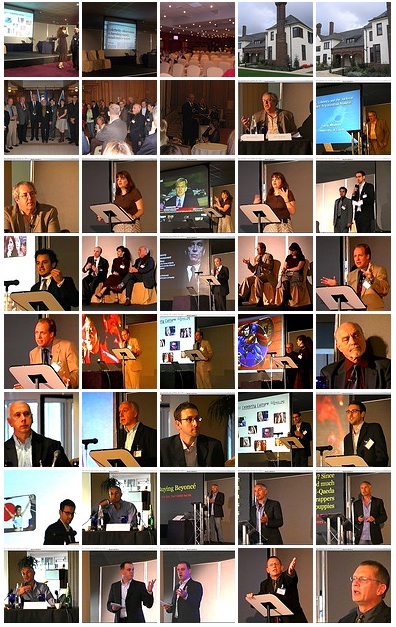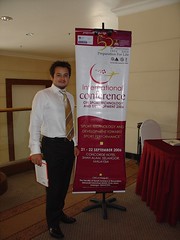Invited lecture in Sept:LESS REMOTEThe Futures of Space Exploration: an Arts & Humanities Symposium
30 September - 1 October 2008 2008 International Astronautical Congress, SEC, Glasgow, Scotland
Abstract Submission Deadline: 11 March 2008 (approx. 300 words and short bio)
For further information, please go to: http://www.lessremote.org
or contact: Flis Holland E-mail: info@lessremote.org +44 (0)114 242 3244
* * * * * * * * * * * * * * * * * * * * * * * * * * * * * * *
LESS REMOTE The Futures of Space Exploration: an Arts & Humanities Symposium
An international symposium to run parallel to the 2008 International Astronautical Congress (IAC).
This symposium will offer a forum in which specialists from many disciplines will be invited to consider the future of space exploration in the context of our current understanding of social, economic and technological imperatives. One of the aims of the symposium is to foster a dialogue and exchange between the cultural and space communities.
Speakers from the arts & humanities and space science & engineering communities will present keynote lectures on space exploration and its possible futures. Papers are also invited from the broad constituency of interest among artists, cultural analysts and historians that has examined the wider implications of the scientific exploration of space for the better part of a century.
(For more information on the 2008 IAC, please visit www.iac2008.co.uk)
Practitioners, scholars and postgraduates in any relevant discipline are invited to submit abstracts that explore the following strands:
Cultures and Space Highlighting the multiplicity of cosmologies that currently hold sway in the world, and considering the consequences of a tacit consensus on the range of opportunities for future space exploration.
The Introspective Urge Focusing on humankind’s image of itself as a determinant of space technology, and the impact of a changing self-image – for example as a consequence of ubiquitous global communications - on future space science.
Leaving a Trace Technical and ethical debate on the impact we have already had on the local solar system, and how our views will affect the possible future of space science and engineering.
Living Space Consideration of the continuity between the needs of humans on earth and the possible demands of spacefarers in remote and often hostile environments.
Organised by Flis Holland and The Arts Catalyst, in association with Leonardo, OLATS and the University of Plymouth. Co-sponsored by IAA Commission VI.
Advisory Committee: Flis Holland (Chair), Nicola Triscott & Rob La Frenais (The Arts Catalyst), Annick Bureaud (Leonardo / OLATS), Stephen Dick (IAA Commission VI), Roger Malina (IAA Commission VI), Michael Punt (Leonardo), Sundar Sarukkai (Centre for Philosophy, Indian National Institute of Advanced Studies)
SUBMISSION GUIDELINES
An abstract (300 words max) and a short bio (200 words max) must be submitted by 11 March 2008, via email to abstracts@lessremote.org
A poster session will also take place during the symposium. Please indicate on your application if a poster presentation is acceptable.
Submissions accepted and presented at the conference will be published in the IAC conference proceedings.





